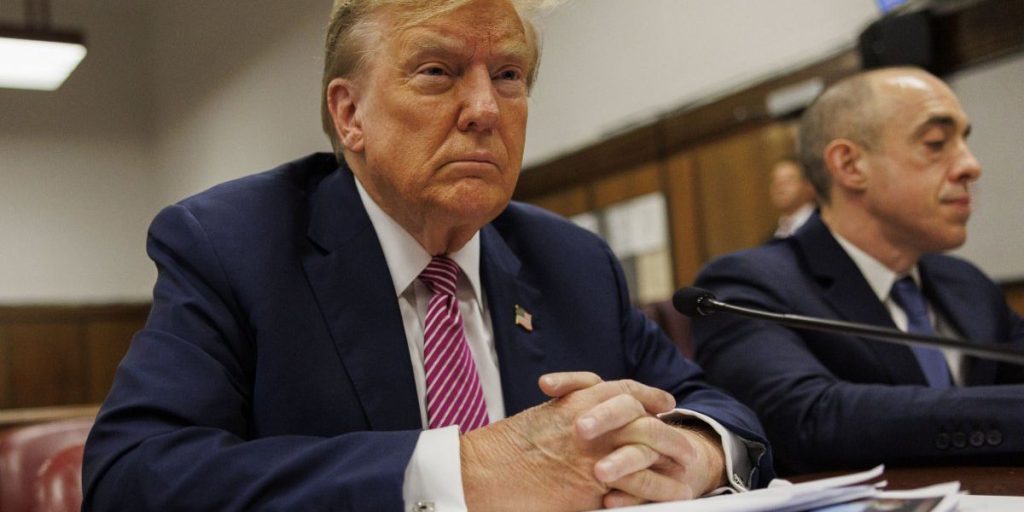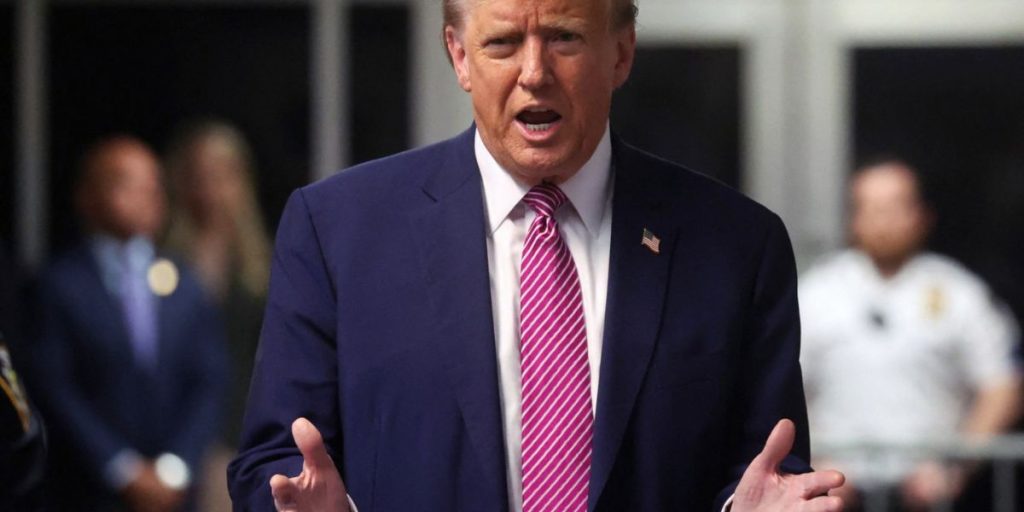Legal analyst Alan Dershowitz issued a warning on Sunday about newly filed legislation that would strip convicts of Secret Service protection, claiming that Democrats want former President Donald Trump “killed.”
On Friday, Representative Bennie Thompson, a Mississippi Democrat and ranking member of the House Committee on Homeland Security, introduced the “Denying Infinite Security and Government Resources Allocated toward Convicted and Extremely Dishonorable Former Protectees Act”—also known as the DISGRACED Act—which would terminate Secret Service protection for individuals convicted of either state or local felonies.
Thompson expressly mentions Trump as someone whose protective privileges would be jeopardized if he is proven guilty, citing the former president’s four criminal indictments. Trump, the presumptive Republican presidential nominee for 2024, became the first former president in US history to face a criminal prosecution, which began on Monday.

Following an investigation by Manhattan District Attorney Alvin Bragg’s office, Trump was indicted in March 2023 on accusations of falsifying company records regarding hush money paid to adult film star Stormy Daniels during his 2016 presidential campaign. Daniels claims that she had an affair with Trump in 2006, which he denies. Trump has pled not guilty to all allegations and claims the investigation is politically motivated.
Dershowitz, a constitutional and criminal lawyer who served on Trump’s legal team during his first impeachment in 2020, spoke with Newsmax on Sunday about the proposal, which is co-sponsored by eight Democratic representatives.
“Bennie Thompson wants to remove Donald Trump’s Secret Service protection if he is convicted of this crime. So, if he is imprisoned, he will not have Secret Service protection. “What do you make of that?” host Jon Glasgow inquired.
“That is ludicrous; it suggests they want him killed since he is clearly a target. We live in an age when everyone is at risk. Look, Bobby Kennedy should have Secret Service protection, and Donald Trump absolutely should. “He’s not going to jail, but if he does, the law clearly requires Secret Service protection,” Dershowitz added.
He added: “The judge [Juan Merchan] will bluff, penalize, and threaten, but he will not imprison Donald Trump. That would be a sure victory…”I don’t think it will happen.”
The bill’s eight Democratic co-sponsors are Representatives Troy Carter of Louisiana, Barbara Lee of California, Frederica Wilson of Florida, Yvette Clarke of New York, Bonnie Watson Coleman of New Jersey, Jasmine Crockett of Texas, Joyce Beatty of Ohio, and Steve Cohen of Tennessee.
However, the bill would only apply to individuals whose offense is “punishable by at least one year in prison.”
Thompson stated that current law does not address how or whether Secret Service protection should or would be provided in the event that Trump or anybody else currently requiring security is sentenced to jail.

“As a result, current law may serve as an impediment to the equal administration of justice and present logistical difficulties for both the Secret Service and prison authorities at the Federal and State levels,” the attorney general said.
Furthermore, a source in Thompson’s office earlier told Newsweek that the law would effect anyone sentenced to a felony who would ordinarily be protected by the Secret Service, adding, “Nobody should be treated differently, and that includes the former president.”
Since 1901, the Secret Service has provided protection to presidents, other high-ranking officials, and select members of their families. Following the killing of Senator Robert F. Kennedy in 1968, protection was extended to major-party presidential nominees.
This has irritated independent presidential candidate Robert F. Kennedy Jr., Senator Kennedy’s son. Alejandro Mayorkas, Secretary of Homeland Security, declined his protection request for the fifth time in late March.
Kennedy Jr. described the judgments as “politically motivated.”
Major presidential and vice presidential candidates, as well as their wives, are eligible for secret service protection within 120 days before a general election.